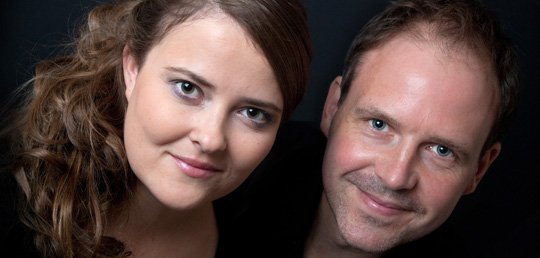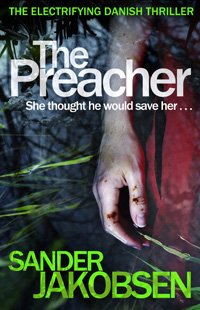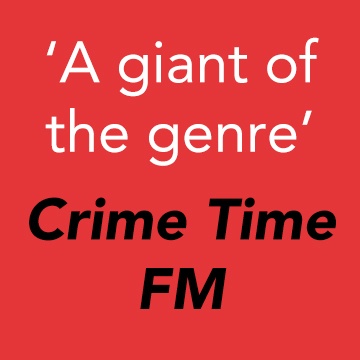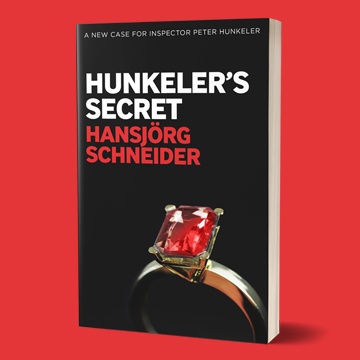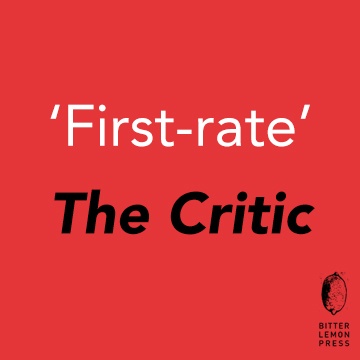There’s a new Scandinavian crime fiction author on the block. Well, two actually. Because Sander Jakobsen is the pseudonym for Danish school teachers Dagmar Winther and Kenneth Degnbol. One day, they decided to write a crime fiction novel together and produced The Preacher, a tale of murder in a small Danish community. Thea Krogh is the detective who must find the Preacher, a scheming and bewitching killer. Its first Danish print run sold out and whilst the book was being reprinted they decided to translate it into English by themselves. Sphere has picked it up and you’ll see a review soon here on Crime Fiction Lover. In the meantime, both authors joined us to talk about their new found crime fiction fame…
First of all, tell us in a nutshell what crime fiction lovers are going to enjoy about The Preacher?
Dagmar Winther: The Preacher has been described as very much a psychological novel as well as a crime novel. I hope readers will enjoy its multi-dimensional characters, its ambition to look very deep into the psychology of a small-town community in Denmark. I also believe The Preacher has a certain degree of realism. It’s less bloody than some books in the genre; what interests me is what happens when so-called normal people are under unusual pressure.
Kenneth Degnbol: It has a creepy plot, great characters and hopefully vivid descriptions of the real Denmark that we know and live in. It’s not just a detective solving the crime – it’s a multi-facetted gallery of characters, all somehow connected to this situation, with lots of different dynamics between them.
Tell us about Thea Krogh. What sets her apart from other detectives in the genre?
Dagmar: She is very calm and together, isn’t a recovering alcoholic, going through a nasty divorce or using any paranormal skills. She is a very rational person and in many ways lonely, having made some tough choices about her personal life and living in a long-term relationship with a married man. She is in many ways hard as nails but also very vulnerable, pensive and ambitious. It’s easy for the people she meets to get under her skin. I think it makes her very human, and very good at her job. She knows how to listen.
Kenneth: Thea is very empathic, and therefore not necessarily that strong, but she has an amazing ability to listen to people and places, which can put her in sensitive situations. She isn’t the hard-boiled type; she in sensitive to the nuances that make a difference in solving a crime.
What would you say is interesting about your villain, The Preacher, and how did you create this killer?
Dagmar: He exists in many shapes and forms, has the desire to control others, to exercise power and manipulate. I believe many who claim to help others may actually be doing damage with hidden agendas, good intentions and a simplified view on how life should be lived. You should always be careful when meeting someone who knows all the answers. Our villain was, in my mind, created out of this amazing dialogue Kenneth wrote. All of a sudden, I could just see him there, hear his voice, his frightening conviction that he is doing the right thing.
Kenneth: Our villain is convincing! He has this whole ideology that he is a firm believer in. That makes him a rational and in many ways normal person; you don’t know that you are dealing with a villain. The whole universe of The Preacher is quite realistic – it is real. And the evil that is in the book lies just inches beneath the surface. That’s what makes it so scary. You don’t need to twist normality much before the abnormal surfaces. The same goes for the villain – as a rational, intellectual person he is almost within the idea of normal, but his slightly different perceptions on psychological and philosophical issues make him dangerous and scary.
Can you tell us a bit about your backgrounds, and how you came together to form a crime writing team?
Dagmar: We are colleagues and work at a Danish folk high school – a boarding school which is not part of the formal education system in Denmark. We went on a school trip to Romania one year, and during one of the long, tedious bus rides I ended up sitting next to Kenneth. And what better way to pass time than to develop a plot for a novel?
Kenneth: We always shared an interest of literature, and our work environment is quite literary in a teacher’s lounge sort of a way. We are somehow a product of our school’s commitment to creativity, always asking questions and having weird discussions. I remember one entire lunch break spent debating how best to dispose of a dead body!
The novel has been a hit in Denmark, how does that feel, and what are some of the most surprising comments you’ve heard about it in your homeland?
Dagmar: At first, it feels like winning the lottery, and afterwards you feel very tired, and then you start worrying again: how will it be received? Will it sell? Will it meet the expectations of the people who spent what is essentially a lot of money on it? Books are ridiculously expensive in Denmark. But I am so very happy and grateful that it’s doing well.
What surprised me the most I guess were comments about it not being a typical crime novel; I believe that it is. And I am happy that many have called it ambitious; even if they didn’t like it. I think you should always be ambitious.
Kenneth: It is an amazing feeling. We’ve had lots of interest in the press, and recently when we went to the Danish Writers’ Association debutant party, our book was one of the ones everyone had heard of. It has been remarkably well received; and so many people have been committed to making it a great success.
What surprised me the most was that a reviewer made a comparison to the Chief Inspector Barnaby series, I believe we have written something so particularly Danish that it’s strange to have it compared to something so utterly British. At the same time, it has made me very proud and hopeful that English readers will enjoy it, too.
How much have you been inspired by other Scandinavian crime authors, and whose work do you admire?
Dagmar: Of the Scandinavians I admire our great Danes Sara Blaedel and Jussi Adler-Olsen, but also Peter Høeg, whose 1992 international bestseller Smilla’s sense of Snow is essentially a crime novel and really raised the bar. I am also a huge fan of the Norwegians Jo Nesbo and Kerstin Ekman. All are truly inspiring in setting the tone of Nordic Noir – this great mixture of beauty and gloominess.
Kenneth: I admire Arne Dahl in terms of traditional crime writing, but I also enjoy the Nordic writers who capture this gloomy atmosphere and challenge the crime novel genre, moves it in different directions. Crime writing fits so well with this mysterious melancholy of the North.
It’s unusual for authors to translate their own works. Why have you decided to do this?
Dagmar: We wanted to try our luck in the larger English-language markets, and it just seemed an obvious thing to do – plus the expense of a translation was not financially possible for us. I’ve later been told than as an author, you cannot translate your own work. I’m glad no-one told me that!
Kenneth: And it’s so exciting to see how your work is received in a different cultural context.







